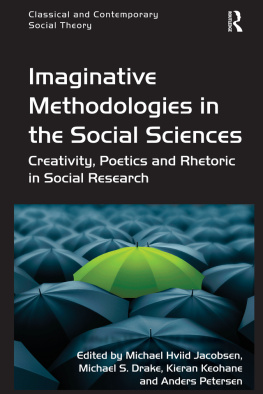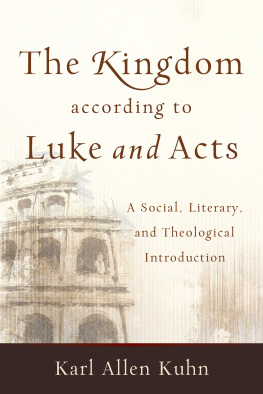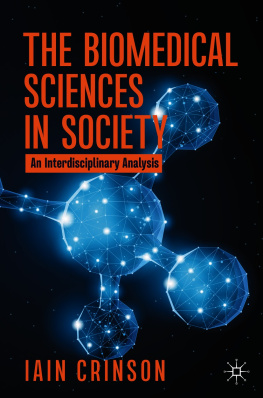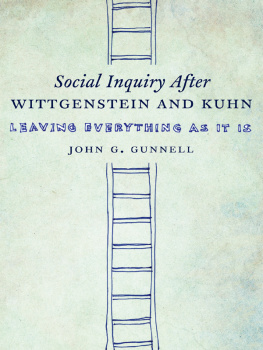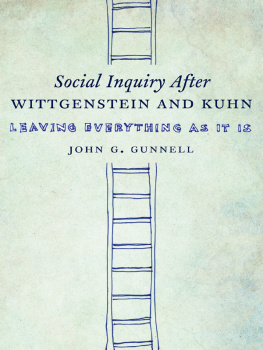Preface
Outlining a theory about the social sciences and critiquing social science thinking as thinking that creates false theories must fail according to social science thinking. Thanks to their concept of critique s ocial science thinking is immune against a critique that critiques false thought. Since social sciences deny that theorizing about the social and since T. Kuhn ' s book interpretation through the social sciences also theorizing in natural sciences about the nature are able to create right theories, there cannot be any critique that a theory is a false theory. Social science theories may well be critiqued, but this critique is not a critique of any false theory, but a critique that argues against all the ex-ante definitions any social science theorizing requires to reveal all its ethical, ontological and methodological choices theorizing must make, choices of what a theory is about and how a theor y intends to th ink about any object of thinking . It is not at all the case that social sciences are not inviting critique. However it is a critique that does not allow critiquing theories as false theories. It i s the ex-ante definitions and choices which open a wide field for critique about all those choices and definitions, however, a critique that a theory creates false thought is no option in this kind of critique , since any theory can be only false in relation to the choices and definitions it must make for theorizing . Nevertheless , since even all these tautological cognitive operations of a critique of in this sense fal se thought in social sciences , like any scientific thought , require to be made plausible , because they are cognitive operations of scientific thinking, they need to be founded with reasons . Though some social sciences meanwhile simply present data and con sider this as having created a founded theory , creating scientific thoug ht cannot just state what a scien tist thinks without any arguments reasoning why he thinks what he thinks. And this is the weak point in this very immune system of social sciences critique against a critique of false thought , because even the immune system of criticism , immune against a critique of false thought, must argue why there is no false and right thought and why th e thought that there is no right thought making social science immune against the critique of false thought, is right thought. This is why it is worth trying to critique social sciences thought w here they create false theories, though such things like false thought according to the social sciences theories about social sciences theorizing do not exist in social science theorizing.
Why a theory about social sciences ?
' Globalization ' is according to the social sciences not only the essential , crafting the contemporary social life, but also the reason urging the ' internationalization ' of the social sciences. This statement contains at least two false thought and one odd confession, bought with a discreet myth , a self-deception about the social sciences .
To start with the confession : T he fact that contemporary social sciences are quite heavily engaged in discuss ing the need to internationalize thinking about the social, is as odd as telling, since it con fesses that thinking about the social beyond i ndividual nation state social s at least until now was not at all a topic for social sciences.
This confession contains the false thought, that the today ' s discovered " globa lization " of the social means that there was no global social before social sciences found out that there is global social. It is only the discovery for the social sciences that there is a social world beyond what their theories are normally about, which have obviously so far been focus ing on any national ly confined objects of thinking, just as if there was no global social in the previous colonized world ' s social . It needed the global spread of nation state socials to make social sciences detect a ' globalization ' of the social beyond the individual na tional social entities . A social world that is not a world of nation state social s for social s ciences obviously is no global social . Only the postcolonial transformation of the world into a world of nation states makes the social sciences realize that there is a world social beyond the secluded national socials .
And this , recognizing a global social after the world became a world of nation states is a discre e t myth of the social sciences about the social sciences , since the social sciences did very well know a social world be yond the nation state socials; they even created a particular discipline , a nthropology, that was and is in charge of the " non- civilized " social , that is all socials which were no nation state social. It is though telling that with the exception of a nthropology, reserved for the non-nation state socials, a world social did not exist for the social sciences until the world was made a world of nation state socials.
The notion ' globalization ' articulates this image of a detected world ' s social , social sciences identify with the agglomeration of individual nation state socials , just as if a world of nation state socials was the final completion of the world ' s social nature : ' Globalization ' is the world- wide spatial spread of something, which does neither have any subject that makes anything global , nor any object , any what that is globalized , nor does the notion reveal any forces or reasons, which are responsible for this mysterious global spread of a subject and ob j ectless something, just as if the world finally be came what it ever quasi naturally was.
From the fact that social sciences are a dvocating the need for international izing social science thinking today , one must in fact conclude, that it took 200 years to make the social science s in the imperial world notice that there was and is a world beyond the nation state social of the imperial nation states . As if the establishment of the imperial countries was not the result of the colonial subjugation of the world by the imperial nation states , exploiting the colonized world and setting the economic basis for the economic we alth and the global power of the imperial world , as if the world of nation states and their imperialism subordinating the world under their comma nd was not the way the global social was and is made , the social sciences, more precisely the social sciences in the imperial nation states, apparently only noticed that there is a social world ou t side of their national social biotop e s , after their national science policies detecte d science as a means for the global competition about economic grow th and political power and therefore forced the sciences to pay more attention to the world beyond the national socials . The fact that it was indeed national s cience policies that " encourage " social sci ence s to work internationally is telling. It obviously needed and needs such political " incentives " to make social science detect an era of " globalization " , just as if the world before consisted only of their secluded national social biotop e s .
For social sciences, the ir discovery of a world ' s social, therefore , still is rather the detection of an exotic elsewhere. D espite all the deb ates on the need to internationalize s ocial thought, the main social sciences theory production is yet to be bothered by such debates and continue s the ir routine work crea ting knowledge not only confined to nation state socials, but knowledge constructed through the perspectives of the peculiarities of individual nation s t ates social s , namely those of the imperial world . Still, thinking beyond a nation state social , is a rather exceptional and adv enturous scientific undertaking, despite all the debates about internationalizing social sciences.


